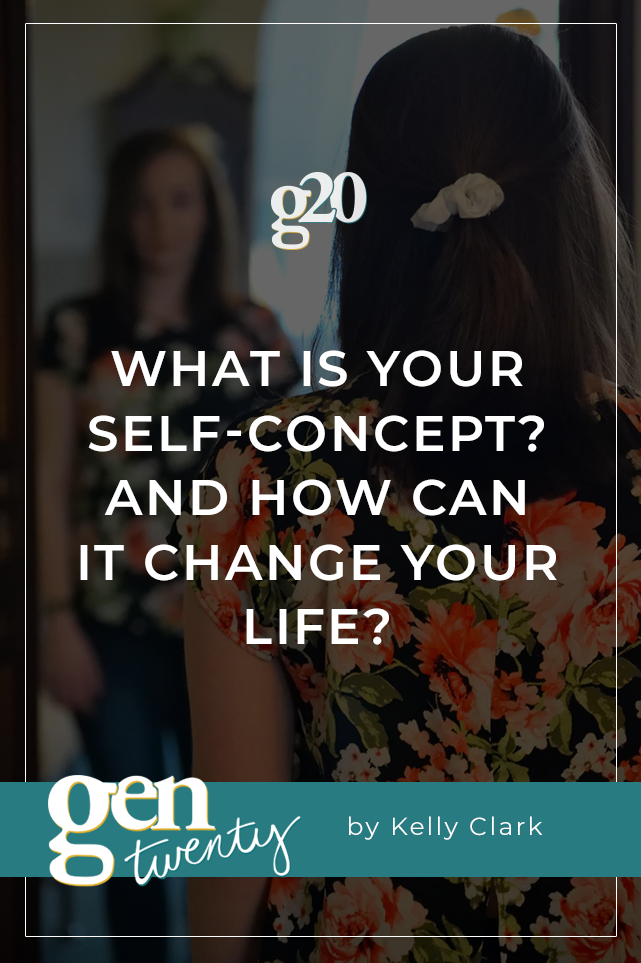
Self-concept is a term that you might not hear of much, I know that I haven’t. Even though the term itself isn’t well known, the components that make up self-concept is. But first, what is a self-concept? Does everyone have one?
What is your self-concept?
Self-concept, put simply, is the collection of beliefs you have about your self. Your self-concept is how you understand who you are. One of the earliest psychologists on self-concept is Carl Rogers. He states that self-concept is made up of three different components, self-image, self-esteem, and ideal self. All of these components together form who you are. Let’s go a little deeper into these components.
1. Self-Image
Self-image, or how you see yourself, can be hard to think about in the time when we all are exposed to each other’s highlight reels on social media and comparing ourselves to others. The important thing to remember here is the way you view yourself isn’t necessarily the truth. I learned this from Simple Psychology.
What this means, in my opinion, is that our self-image can change. Yes some of our physical characteristics can’t change; but the majority of the identifiers that make up how we see ourselves can. If you have a negative self-image now, all hope is not lost. As you learn and grow, by working on self-acceptance and self-love, you will come to have a more positive self-image.
2. Self-Esteem
Self-esteem is determined by how much you value yourself. This is my biggest struggle right now. Your self-esteem affects everything from how confident you are to even your mental health. A beneficial exercise to do if you also struggle with self-esteem is to replace any negative thoughts you may have about yourself with positive ones. I have learned this, and practiced a lot, while in counseling. This video also speaks on why positive thoughts are so important.
3. Ideal Self
Ideal Self The last component of self-concept, according to Rogers, is the ideal self. This is the person you aspire to be or the traits you aspire to have. While everyone has their “ideal self” it can turn unhealthy when you focus on that in a sense of something you’ll never be able to obtain. That is a place I have gotten stuck in a lot over the years. I’m learning that the ideal self isn’t meant to be an enemy, like I’ve made it out to be. You can use your ideal self as a place to look to for inspiration when you aren’t sure what to do next.
For example, part of my ideal self is someone who inspires people. A great first step for me to do this was by joining the GenTwenty team, as well as starting my own blog. I wouldn’t have thought about sharing my story and starting a blog without that desire that comes from my ideal self.
How All 3 Self-Concept Components Come Together
Now that you know the three self-concept components, are you starting to see how they all relate and come together?
The goal is to have your self-image be close to your ideal self. This is called being congruent, and odds are, it means that you have a high self-esteem as well. Incongruence occurs when your self-image and ideal self are different. The more incongruent you are, the more your self-esteem is affected, That is where I was when I had an unhealthy obsession with my ideal self.
Next Steps In Your Self-Concept Journey
Now that you know what self-concept means, it’s time to evaluate what self-concept is for you. Do you view yourself as more congruent, your self-image is close to your ideal self, or do you feel more incongruent, your self-image and ideal self differ greatly? If you are more of the latter, like me, here are some things I am doing, and I encourage you to do as well. Together we can move towards becoming more congruent, which will also boost our self-esteem.
1. Examine the motives behind your ideal self.
Are you wanting to be/do these things because that is what you truly want to be defined as, or are you seeking to be someone else. If it is the latter it is time to let those go. I know it can be hard when you think if you just “had that job” or “looked that way” then you would have it all like that person seems to, but that isn’t true. Everyone struggles with something. Do we all show it? No. This means we should never seek to be someone else. Instead, let’s work on being the best versions of ourselves.
2. Get Your Friends Input.
Ask your friends to tell you what they think about you. You can ask questions like: “Describe me in three words?” “What are five things you love about me?” I’ve done this a few times over the years. As awkward as it is at first, it can be not only insightful, but a mood-booster as well. You may find out that you are closer to your ideal self than you think you are.
3. Seek Help.
If you have done the above tasks and are still struggling with low self-esteem and an unattainable ideal self, it may be a good idea to see a counselor. Counselors are helpful for many reasons, one being that they help you make sense of what you are going through and how to move forward. You don’t necessarily have to be struggling with a mental illness to benefit from counseling.
Now that you know what self-concept is I would love to know your thoughts. Have you struggled with any of the three components of self-concept? How did you overcome those struggles?
